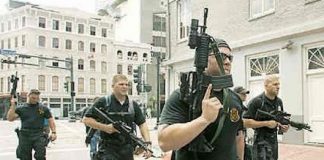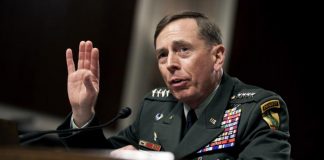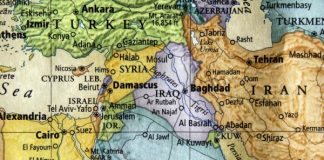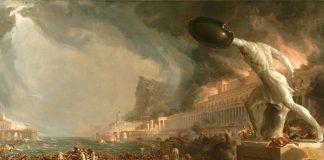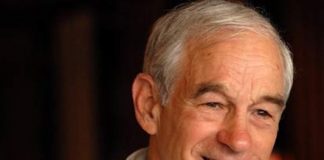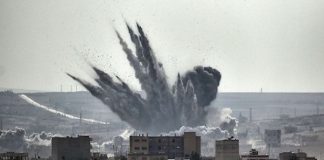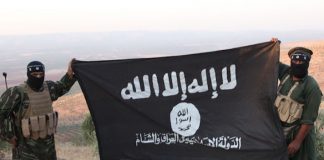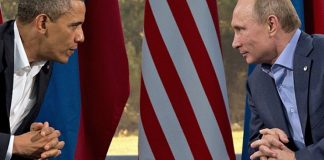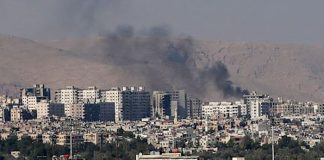ISIS
Obama extends global reach of US Special Operations death squads
Obama has approved a proposal to give JSOC independent authority to operate outside the regional commands, essentially as a globalized assassination force. JSOC units will bypass the regional commanders and report directly to Special Operations Command (SOCOM) in the Pentagon.
Trump and Petraeus (US “ISIS strategist”)
President-elect Donald Trump met with retired General David Petraeus Monday, as a senior official with the transition said the former CIA director is being considered for secretary of state amid open infighting among Trump’s advisers about who to pick for the post. “Just met with General Petraeus -- was very impressed!” Trump said in a Twitter post after
Trump’s Team Will Start New Wars in the Middle East
Blood-curdling proposals for the persecution of Muslims played a central role in Trump’s election campaign. At one moment, he promised to stop all Muslims from entering the US, though this was later changed to “extreme vetting”. The use of torture by water-boarding was approved and applauded, and Hillary Clinton was pilloried for not speaking of “radical Islamic terrorism”.
Αrchbishop of Canterbury: You turned Greece into the “biggest debtor’s prison...
The weight has fallen on those least able to survive, and when their own suffering was aggravated by the desperate plight of hundreds of thousands of refugees, and now millions, little help was given. What we have seen is the global market system, and especially the EU, lend people money to buy things and then strangle their hopes and futures when they cannot repay. What we now have is the biggest debtor's prison in European history.
The Nemesis and Scourges of the Western World
Seven is a winning throw of the dice. But in our civil society, seven now signifies the multi-thong scourge, the whip used by the Western world as its instrument of punishment and, in response; seven signifies Nemesis and her sisters, the inescapable agents of the West’s downfall.
Ron Paul on Trump, deep state, the war against Terror
With the surprise election of Donald Trump, can we expect an equally surprising foreign policy from him? During the campaign he provided us with a glimpse of his thinking. Will there be a Trump Doctrine?!
RT'S PETER LAVELLE INTERVIEWS DR. RON PAUL
Mosul’s Frightening and Uncertain Future
If the anti-Isis forces ultimately succeed in recapturing Mosul it will be the fifth time the city has changed hands in the course of 13 years of war. The first time was in April 2003 when the Iraqi army was breaking up and surrendering and the Kurdish Peshmerga burst into the city. There was looting on a mass scale which the Arabs blamed on the Kurds and vice versa, but in fact both took part. I saw crowds ransack the governor’s mansion, the Central Bank and the university.
Modern “Wars of Symbols”
Global hedge fund tycoon and political provocateur George Soros is leading a war of symbols, namely flags and banners either resurrected or conjured up by his myriad non-profit groups, to stir religious, racial, and ethnic tensions the world over. From the Serbian OTPOR! movement and its clenched-fist symbol adopted by protests groups around the world to the menacing black and white flag of the Islamic State, which first appeared during the Soros-backed “Arab Spring” rebellions, Soros’s “false flag” factories have been running at break-neck production speeds.
Russia-Syria-West: New warnings, threats and confusion
“We are moving into an era that is as dangerous, if not more dangerous, as the cold war”, warned not some pacifist, but the ex-head of British MI6 Sawers himself, adding that “we are not treating Russia and China as major powers that can cause us a great deal of damage. What we really need to do is try to avoid the road which leads to a direct confrontation”.
Syrian Conflict Escalates
Speaking before a United Nations Security Council meeting on Syria Wednesday, US Secretary of State John Kerry demagogically blamed Russia and the government of President Bashar al-Assad for the escalating violence that has left a ceasefire reached earlier this month in tatters.
